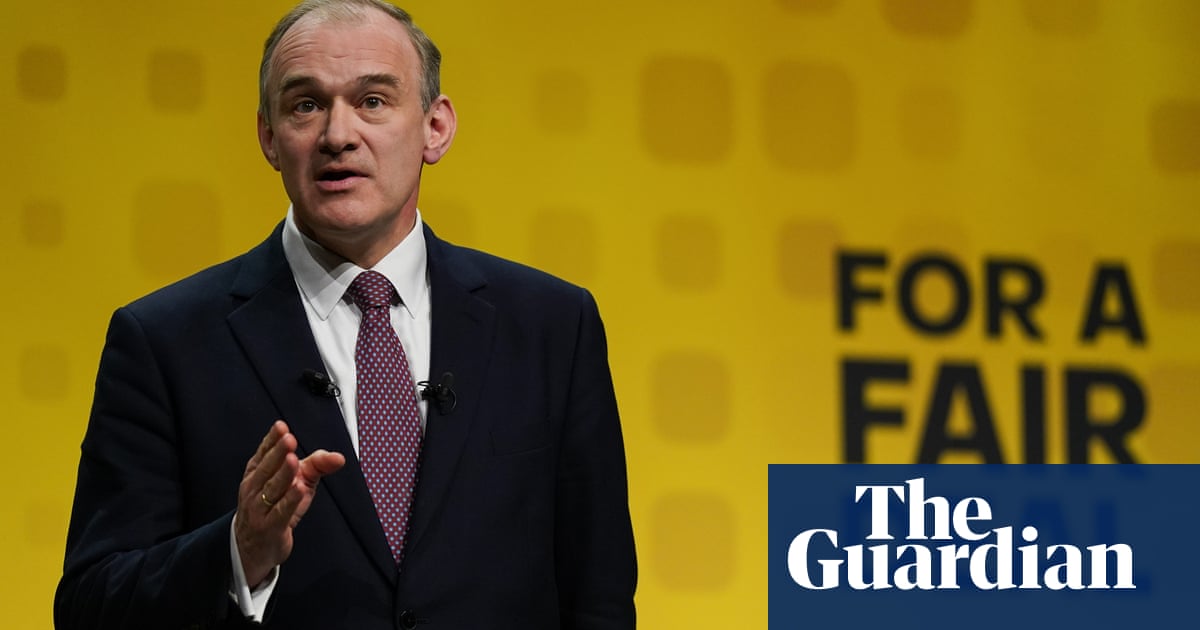
Little more than a fortnight after pulling off one of the more remarkable byelection wins of recent years, the new MP for Chesham and Amersham, Sarah Green, is attempting something arguably just as difficult: setting up her parliamentary operation from scratch.
She has a temporary office and two staff on secondment from Liberal Democrat colleagues, but she also has to recruit employees for her Buckinghamshire constituency, where the party does not have a long-established presence.
For all the coverage of Labour’s travails in Hartlepool and, this week, Batley and Spen, the Chesham byelection passed almost under the radar – at least until the result, in which a 16,000 majority for the Conservatives, who had always held the seat, turned into an 8,000-vote margin for Green.
“The media virtually didn’t cover it, and nobody bothered to organise a hustings as they thought it was a foregone conclusion,” Green told the Guardian from her Commons office.
While Green says “a route to victory” always looked theoretically possible, even Lib Dem activists were doubtful beforehand, with one telling the Guardian they initially assumed the party’s claims of being able to win were standard byelection hubris.
But the longer the campaign went on, the more it seemed apparent something very unusual was happening, to the extent that one senior local Conservative told a Lib Dem canvasser that although he had to vote for his candidate, he wished Green luck.
Rather than being a one-off upset, Green and other Lib Dems argue that their campaigning uncovered widespread dissatisfaction with the Conservatives and Boris Johnson.
A series of activists told the Guardian that while many Conservative voters mentioned the HS2 rail project – which will pass through the area – and changes to planning rules, these were largely symptoms of a government with little interest in such “blue wall” commuter-belt areas.
Perhaps most worrying for Johnson is the idea, which Lib Dem canvassers say they heard regularly, that many more traditional, one nation Conservatives now view the prime minister in a dim light, and that allegations about cronyism and favours for contacts amid the pandemic appear to be cutting through.
“The overarching theme was people feeling taken for granted, being ignored,” Green said. “With some people it was about Boris himself, with others the phrase was ‘snouts in a trough’. One of our canvassers heard a conversation where someone said: ‘All you need is Boris Johnson’s mobile phone number and you’re sorted.’
“My impression was that this dissatisfaction with the Conservative party, and the Conservative government, had many layers to it. I think my favourite phrase – and two people said it to me – was ‘it’s just not cricket’. It’s this idea that this is not a Conservative party they associate themselves with.”
While the Lib Dems were able to devote considerable resources to the byelection and present themselves as the only viable challenger – the Labour vote slumped to just 622 – within the party, still badly bruised by the 2019 general election, the hope is that Chesham and Amersham could be a blueprint for dozens of similar seats.
“There is a running undercurrent here that we have dipped a toe into,” said Layla Moran, who took her Oxford West and Abingdon seat from the Tories in 2017. “We’ve just go to be very clear about what happened here.
“It’s one thing when voters don’t like your policy. It’s quite another when they fundamentally do not trust you. It’s very damaging. And in claiming this is all about HS2 and planning reforms, I think the Tories have fundamentally misunderstood their problem.”
Daisy Cooper, who won St Albans from the Conservatives and, like Moran, campaigned regularly for Green, agreed with this verdict. “The Tories are trying to paint this as a referendum on HS2 because it’s convenient for them to do that. The reality is, in most places HS2 didn’t come up a great deal, and when it did it was about a lack of consultation, an irritation that no one is listening.
“The phrase that summed it up was: ‘We’re getting fed up with this.’ Time and time again on the doorstep, people said they felt taken for granted. You could ask why and everyone would have a different reason.”
Cooper said she also heard regular criticism of Johnson from traditional Conservative voters: “They wouldn’t use words like nationalistic or populist, they’d say things like, ‘He’s an embarrassment, isn’t he?’ I felt it very much about character.”
It has been a dizzying few weeks for Green, who initially “pressed pause” on the training company she co-runs, and she says the night of the byelection was so emotionally intense that she has yet to read any coverage or view TV footage “as I think I might find it overwhelming”.
Green grew up in Corwen, in rural north Wales, where her family still live, contested Welsh seats for the Lib Dems in the 2005 and 2010 general elections, and in 2019 helped run the campaign for Dominic Grieve, the deselected Tory MP running as an independent in neighbouring Beaconsfield.
But the new chance to run for parliament, caused by the death of the long-serving Conservative MP Cheryl Gillan, came as a surprise, as did the fact she is now the Lib Dems’ 12th MP.
Green said she was conscious of holding the torch for a long-established political party that once again had been written off by many. “It’s a wonderful thing to think you’ve changed the narrative. That feels good.”












